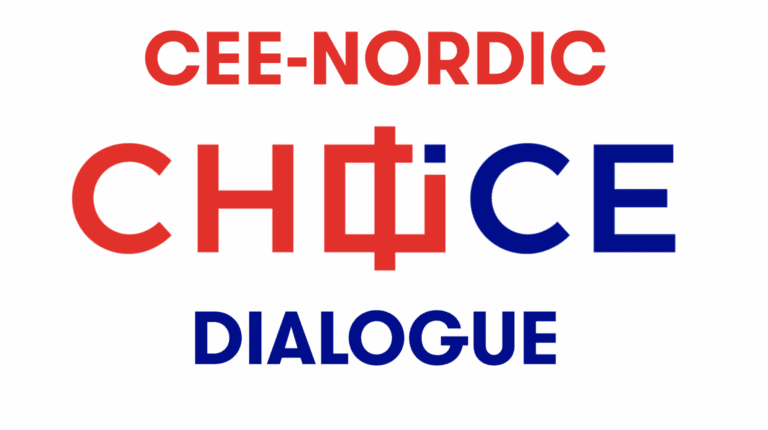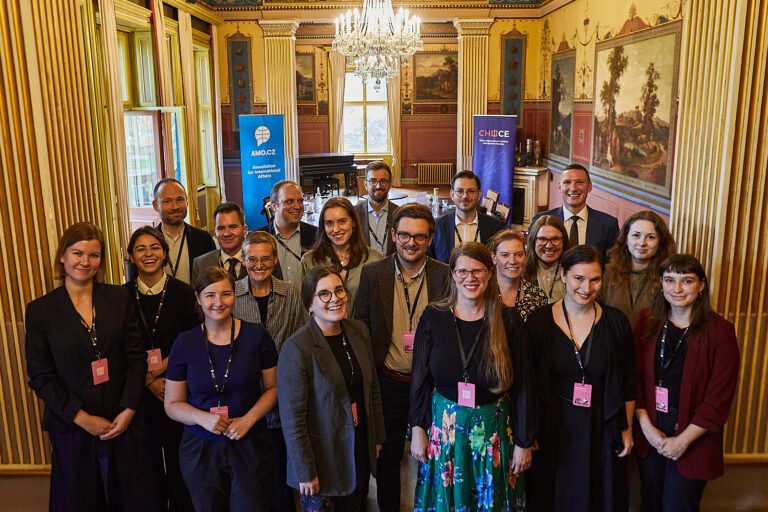China’s ‘Digital Silk Road’ Enters the Western Balkans

The Digital Silk Road (DSR), an important component of China’s Belt and Road Initiative (BRI), is an increasingly scrutinized aspect of China’s foreign policy toolbox that combines the efforts of the Chinese government and Chinese tech companies across a wide array of areas. This ranges from telecommunications networks, to ‘Smart City’ projects, to e-commerce, to Chinese satellite navigation systems. For Europe, a major epicenter of this effort is clearly visible in the Western Balkans.
As such, CHOICE hosted a closed-door discussion on June 22 with numerous experts and policymakers in the region, with CHOICE’s latest research paper on the topic serving as the catalyst for the frank conversation.
The experts noted foremost the amorphous nature of the efforts that undergird the Digital Silk Road, driven largely by a significant transformation of China’s own economic policies. Namely, technology has quickly ascended to become an important component of China’s national pride, image, and strategic interest. Extensive mobile payment adoption in China, an ambition to become the world leader in AI, and pioneering in blockchain technology are all signals of a heavy focus on the tech industry. However, 5G may be the most prominent above all, especially in terms of its national champion Huawei’s ambition abroad.
Yet, the key question is about trust as scrutiny intensifies. Indeed, many nations have begun to question the links between the state and these companies, what China’s use for data might be, and what risks are posed to critical infrastructure if installed by China. The experts noted that these questions are critical to 5G rollouts, as the technology allows for all devices to be interconnected, especially as the Internet of Things (IoT) paradigm accelerates.
Serbia as a Centerpiece
Perhaps most discussed among the nations of the Western Balkans among the group was Serbia, which has become a focal point for Chinese efforts in the region.
Despite the attention from China, the nation has taken a somewhat duplicitous position in the recent past. While the country’s leadership has been consummately laudatory of China and has welcomed China’s investments in smart city technology for example, President Vucic has also placated western partners in signing 5G accords on ‘untrusted vendors’ with Washington as well. Nonetheless, the overall image presented by the Serbian President has been one of “steel friendship” with Xi and therefore a firm alliance with China, including a partnership across numerous tech sectors and overall infrastructure.
The experts noted that Serbia must eschew some instincts to over-rely on China, as increased dependence on China for technological infrastructure in particular could portend serious security risks.
EU as the Arbiter?
Given Serbia’s position in the Western Balkans it could well influence its neighboring nations such as North Macedonia, Montenegro, or Bosnia and Herzegovina. However, as the region’s states all find themselves as potential accession candidates to the European Union, the influence of the neighboring EU bloc was noted as perhaps a greater influencer.
In this case, the existing EU Toolbox may be used as a standard for the 5G rollouts in the region, both guiding the group and untangling the discussion from the bipolar US-China debate directly. Further, given each nation is a potential part of the overall EU’s future, a unified stance on these issues is crucial for all parties involved as integration potentially approaches.
Still, on this front it is important that the EU provide a motivating factor for compliance. The ensuing discussion on the topic surmised that critical infrastructure guideline adherence ought to be linked with membership prospects or potential funding. With Montenegro as a nation already applying for EU assistance in dealing with China in traditional infrastructure, measures to prevent such a predicament in technological infrastructure were seen as sensible.
Nonetheless, as China pours money into financing 5G and critical technology both the EU and the competing US will need to offer a counter or motivation for the countries in the region to pursue transparent and secure policies.
For more on the problems facing the region at present in technology transition, as well as potential solutions, read CHOICE’s full research paper here.
Written by
CHOICE
CHOICE is a multinational consortium of experts providing informed analysis on the rising influence of the People’s Republic of China within the countries of Central and Eastern Europe (CEE).


